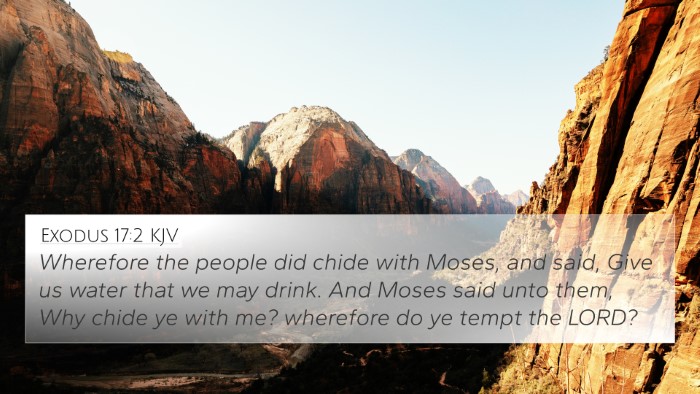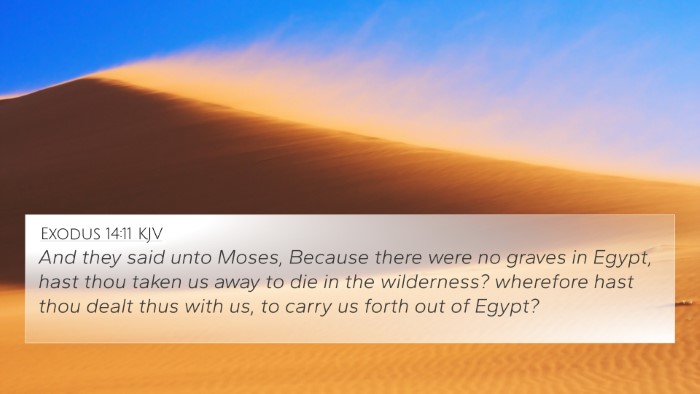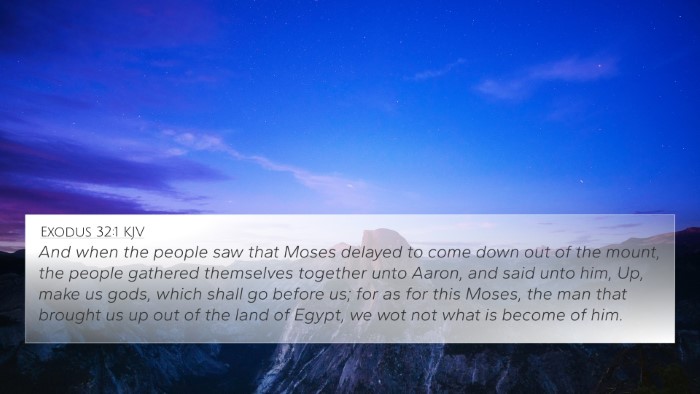Understanding Numbers 14:22
Numbers 14:22 states: "Because all those men which have seen my glory, and my miracles, which I did in Egypt and in the wilderness, and have tempted me now these ten times, and have not hearkened to my voice;" This verse signifies the pivotal moment when God expresses His disappointment with the Israelites' lack of faith despite witnessing His mighty acts and miracles.
This passage serves as an important illustration of God's justice and the consequences of disobedience. Let’s delve into a deeper understanding of this verse through the insights from notable Bible commentaries.
Commentary Insights
Here are summarized insights from Matthew Henry, Albert Barnes, and Adam Clarke regarding this verse:
Matthew Henry's Commentary
Matthew Henry emphasizes the significance of the Israelites' direct experiences with God's glory and miracles, highlighting their hardness of heart and persistent rebellion. He notes that their repeated temptations of God reflect a grievous ungratefulness toward the miracles they witnessed, which should have led to a firm faith and trust in Him. Henry argues that the phrase "ten times" indicates a complete and thorough testing of God's patience, demonstrating the depth of their failure to obey and trust in the Lord.
Albert Barnes' Notes
Albert Barnes points out that the mention of "my glory" refers to God's visible presence among the people, specifically as seen in the cloud and fire. He interprets this verse as a serious rebuke to the Israelites for their ongoing incredulity. Barnes emphasizes that their rebellion, despite such divine manifestations, seals their fates, marking a separation between those who believe and those who do not. He also underscores the significance of this moment as foundational in understanding divine judgment and mercy.
Adam Clarke's Commentary
Adam Clarke takes a detailed view of the phrase "tempted me these ten times". He interprets the 'ten times' as a hyperbolic expression of the numerous occasions on which the Israelites tested God's will and purpose. Clarke elaborates that this verse articulates God's disappointment due to the lack of faith shown after countless acts of divine intervention and miraculous provision, serving as a stark warning to future generations regarding the gravity of disbelief.
Bible Cross-References
This verse connects significantly with other scriptures which illustrate similar themes of rebellion, testing God, and divine justice. Here are 10 related Bible verses:
- Exodus 16:3 - The Israelites openly complain about their conditions, showing continued discontent.
- Psalm 95:9 - A reminder of the rebellion in the wilderness and God's displeasure with those who tested Him.
- Hebrews 3:16-19 - Reflects on the Israelites' disbelief and warns against hardening of hearts.
- Deuteronomy 6:16 - A direct admonition not to test God, paralleling the idea in Numbers 14:22.
- 1 Corinthians 10:9 - Paul mentions how Israel tempted Christ in the wilderness, relating to testing God's patience.
- Acts 7:39 - Stephen recalls the persistent rebellion of the Israelites, reinforcing the recurrent theme.
- Luke 16:31 - Jesus highlights that miracles alone do not convince the hearts hardened in disbelief.
- Matthew 23:37 - Jesus laments over Jerusalem's refusal to heed God's calls, reflecting the same rebellion.
- Romans 9:31-32 - Paul discusses Israel's pursuit of righteousness but asserts they stumbled on faith.
- Jude 1:5 - A reminder of how God saved a people from Egypt yet later destroyed those who did not believe.
Thematic Bible Verse Connections
Numbers 14:22 is deeply interwoven with themes of faithfulness, divine justice, and the nature of belief in God throughout the biblical narrative. Here are some thematic connections:
- Faith vs. Unbelief: The critical choice faced by the Israelites illustrated in contrasting faith-driven leaders against a faithless congregation.
- Divine Patience: The enduring patience of God towards His people, even in the face of persistent rebellion.
- Consequences of Disobedience: The theme of God’s justice where disobedience leads to severe consequences, as echoed in many scripture references throughout the Bible.
- God's Sovereignty: Understanding God's ultimate control over history as he relates to His covenant people and their collective failures.
Conclusion
Numbers 14:22 serves as a profound reflection on the nature of God’s expectations of His people, the seriousness of disobedience, and the consequences that arise from an unwillingness to believe. By exploring related verses and themes, we gain deeper insights into the unity of the biblical narrative and the ongoing call to faithfulness in our walk with God.
This passage can be utilized as a pivotal point in cross-referencing biblical texts to highlight important truths about faith, obedience, and the challenge of maintaining belief amidst trials. Understanding cross-references is indeed essential in performing a comparative Bible verse analysis, reflecting on how these scriptures interconnect to reveal deeper aspects of God’s relationship with humanity.



















